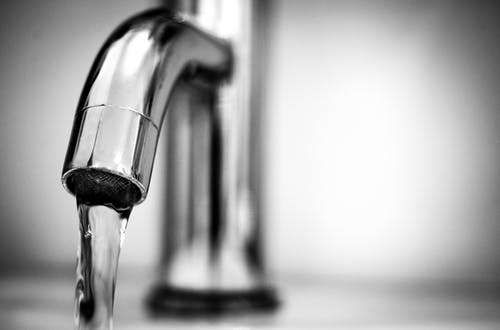
Officials are partnering to educate and equip Kent County residents to prevent lead exposure from older plumbing.
GRAND RAPIDS, Mich. (June 21, 2023) – (Press Release) - The Kent County Health Department (KCHD), Michigan Department of Health and Human Services (MDHHS) and City of Grand Rapids launched a campaign today to educate Kent County residents about preventing lead exposure from older plumbing, faucets, fixtures and water service lines. Officials recommend that Kent County residents use a certified lead-reducing drinking water filter if their home has or if they are uncertain if it has one of the following:
- Lead or galvanized plumbing.
- A lead service line carrying water from the street to their residence.
- Older faucets and fittings sold before 2014.
“Knowledge and action are formidable tools in our fight against lead,” said Kent County Administrative Health Officer, Dr. Adam London. “It is good common sense for residents living in homes with specific conditions for lead to leach in the drinking water to use a certified lead-reducing filter.”
KCHD has produced a video to help residents determine if they have lead, galvanized or other plumbing materials in their home. The City of Grand Rapids has posted a map of lead service lines in the city.
To support their recommendations, KCHD, MDHHS, and the City of Grand Rapids are collaborating to distribute thousands of free drinking water filters to eligible Kent County households. Households are eligible for a free filter if the residence has a lead service line or any lead plumbing and meets the following qualifications:
- A child under 18 or a pregnant woman lives in the home, and
- A member of the household is enrolled in Medicaid or WIC, and
- The household is unable to afford a filter.
This Kent County pilot project is part of a larger effort by MDHHS to reduce lead exposure that could be occurring through drinking water. Proactively getting certified lead-reducing water filters into homes with lead or galvanized plumbing and service lines will help protect Michigan families from potential health effects.
“Using a certified lead reducing water filter is a prevention tactic much like having smoke detectors and fire extinguishers in your home,” said Elizabeth Hertel, MDHHS director. “By encouraging filter use and getting filters out into the community, we will protect Kent County families by minimizing lead exposure through drinking water.”
Municipal water systems throughout Kent County are tested regularly and meet all state and federal guidelines governing lead levels. However, lead may enter drinking water due to corrosion of older water service lines and pipes, faucets, and fittings inside the home.
“We know that the water being delivered to homes in Grand Rapids is safe. But we also recognize that until we’re able to eliminate every potential source of contamination now and in the future, including those inside of the home, interim solutions like filters can play a critical role in helping to keep our residents safe,” said Grand Rapids Mayor Rosalynn Bliss.
Kent County residents who are eligible for a free water filter should visit gettingaheadoflead.com to complete a short survey and to register for a time to pick up their filter. The registration survey is required and available in English and Spanish.
Distribution of the filters (pictured above) will begin June 22 at two separate locations:
- City of Grand Rapids Filter Distribution
- 124 Martin Luther King Jr. Street SE, Grand Rapids, MI 49506
- Operational Hours:
- Thursday, June 22 ∙ 10 a.m. – 2 p.m.
- Monday, June 26 ∙ 10 a.m. – 2 p.m.
- Wednesday, June 28 ∙ 3 p.m. – 6 p.m.
- Thursday, July 6 ∙ 10 a.m. – 2 p.m.
- Saturday, July 8 ∙ 11 a.m. – 4 p.m.
- City of Kentwood Filter Distribution
- Kentwood Public Schools - Facilities and Operations Building, 6160 Valley Lane Dr. S.E., Kentwood, MI 49508
- Operational Hours:
- Friday, June 23 ∙ 10 a.m. – 2 p.m.
- Tuesday, June 27 ∙ 10 a.m. – 2 p.m.
- Thursday, June 29 ∙ 3 p.m. – 6 p.m.
- Wednesday, July 5 ∙ 3 p.m. – 6 p.m.
Additional pick-up locations will be announced in the weeks ahead.
Residents who don’t qualify for free filters but who suspect their plumbing puts them at risk for lead exposure should purchase and install lead-reducing water filters on faucets used for drinking and cooking. Look for water filter packaging marked with the following certifications: NSF/ANSI Standard 53 for lead reduction and NSF/ANSI Standard 42 for particulate reduction (Class I).
Residents should not boil water to remove lead.
Residents should use cold, filtered water for:
- Rinsing foods and cooking.
- Making baby formula.
- Brushing teeth.
Unfiltered water can be used for:
- Washing hands, showering, and bathing.
- Washing dishes and doing laundry.
- Household cleaning.
Families can further reduce exposure to lead in household drinking water by following these tips:
Keeping water moving. Run water for several minutes each morning or after household water has not been used for several hours. This brings new water into the home’s pipes before using it for drinking, cooking, and making baby formula. Before using the water from any faucet for drinking or cooking, run the water again for at least several seconds or until it goes from room temperature to cold. This can be accomplished by doing household tasks like showering, washing clothes, or running the dishwasher first.
Remove and clean aerators—the screens on the ends of faucets—every six months. Aerators help keep pieces of lead and other particles from getting into your water. During construction or repairs to the public water system or service lines near your home, clean aerators at least every month until the work is done. Step-by-step guidance for cleaning aerators is provided in the Cleaning Your Aerators flyer.
Replace older plumbing, pipes, and faucets to prevent lead in drinking water. According to the EPA, lead can enter drinking water when lead-based plumbing materials corrode. The most common sources of lead in drinking water include lead service lines, pipes, faucets, and fixtures. Lead pipes are more likely to be found in homes built before 1986.
Older faucets and fittings sold before 2014 may contain up to 8% lead, even if marked “lead-free.” Look for replacement faucets made in 2014 or later and make sure they are NSF 61 certified or marked to contain 0.25% lead or less. Residents can hire a plumber to find parts that should be replaced to reduce lead in drinking water.
The Centers for Disease Control and Prevention and Environmental Protection Agency agree that there is no known safe level of lead in a child's blood. Taking action to reduce these exposures can improve health outcomes. Lead is harmful to health, especially for children.
Residents with questions about the lead-reducing water filter program or who need assistance with the registration process and pick up information may contact the KCHD at (616) 632-7145, Heart of West Michigan United Way 211 or the City of Grand Rapids Customer Service Center at 311.

 5/3/24 - Next Week Is Election Day In Michigan
5/3/24 - Next Week Is Election Day In Michigan
 5/2/24 - It's The National Day Of Prayer
5/2/24 - It's The National Day Of Prayer
 5/1/24 - Former President Trump Will Be In Michigan
5/1/24 - Former President Trump Will Be In Michigan
 4/30/24 - Operation Ghost Rider Goes Into Effect In Michigan
4/30/24 - Operation Ghost Rider Goes Into Effect In Michigan
 4/29/24 - Gov. Whitmer Signs Bills To Benefit Student Athletes
4/29/24 - Gov. Whitmer Signs Bills To Benefit Student Athletes
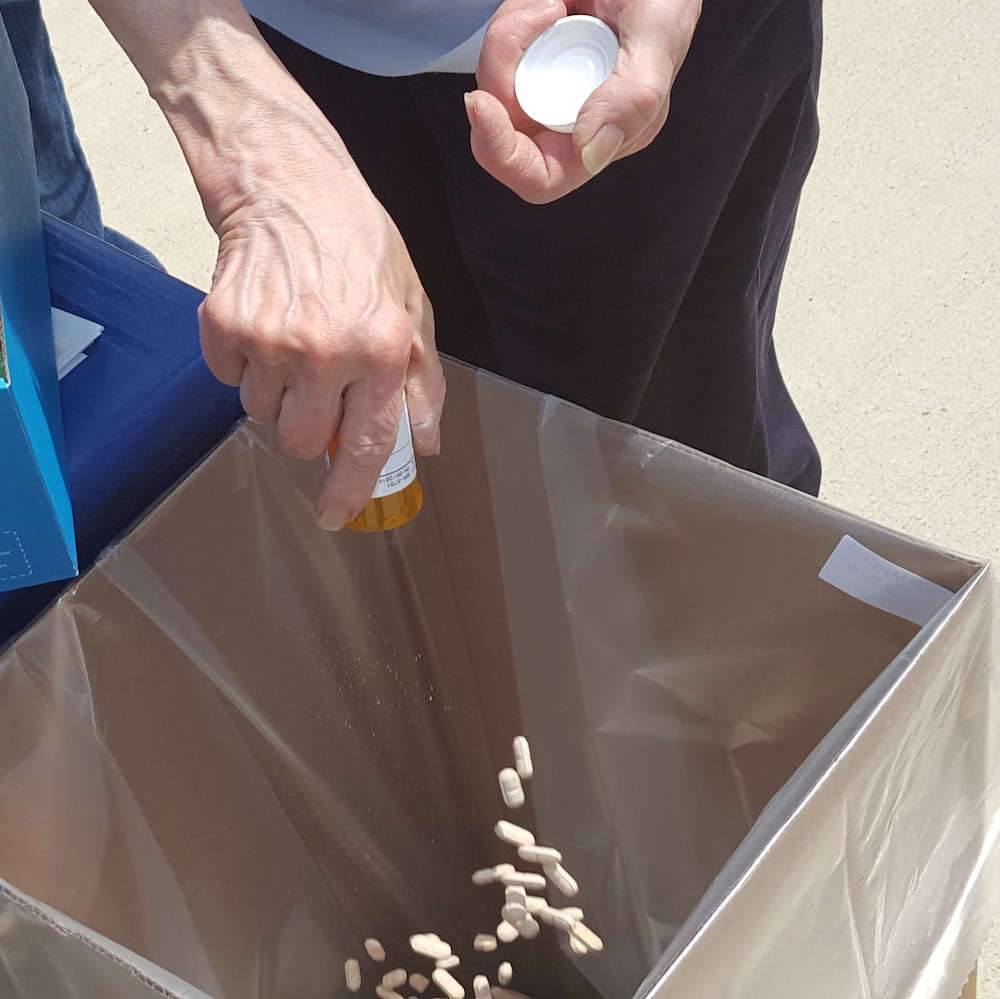 4/26/24 - Saturday is National Prescription Drug Take Back Day
4/26/24 - Saturday is National Prescription Drug Take Back Day
 4/24/24 - Senate Passes Foreign Aid Bill
4/24/24 - Senate Passes Foreign Aid Bill
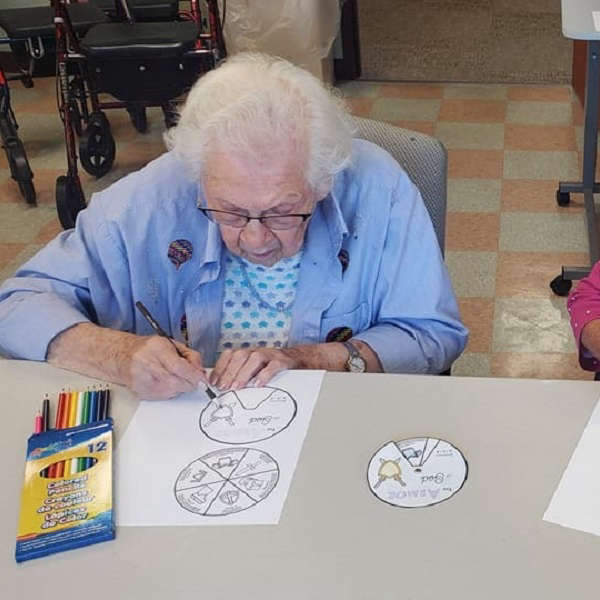 4/23/24 - Nursing Home Changes
4/23/24 - Nursing Home Changes
 4/19/24 - UPDATE: Christian Music Artist Mandisa Has Passed Away - Tributes
4/19/24 - UPDATE: Christian Music Artist Mandisa Has Passed Away - Tributes
 4/19/24 - Israel Carries Out Military Strike Against Iran
4/19/24 - Israel Carries Out Military Strike Against Iran
 4/18/24 - Ford Issues Another Recall For Some Broncos
4/18/24 - Ford Issues Another Recall For Some Broncos
 4/17/24 - Increased Thefts At Construction Sites
4/17/24 - Increased Thefts At Construction Sites
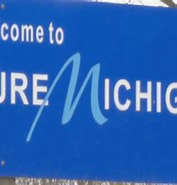 4/16/26 - Conference Focuses On Michigan's Tourism Industry
4/16/26 - Conference Focuses On Michigan's Tourism Industry
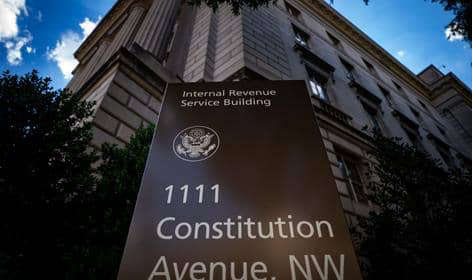 4/15/24 - TAX Day - File By Midnight
4/15/24 - TAX Day - File By Midnight


